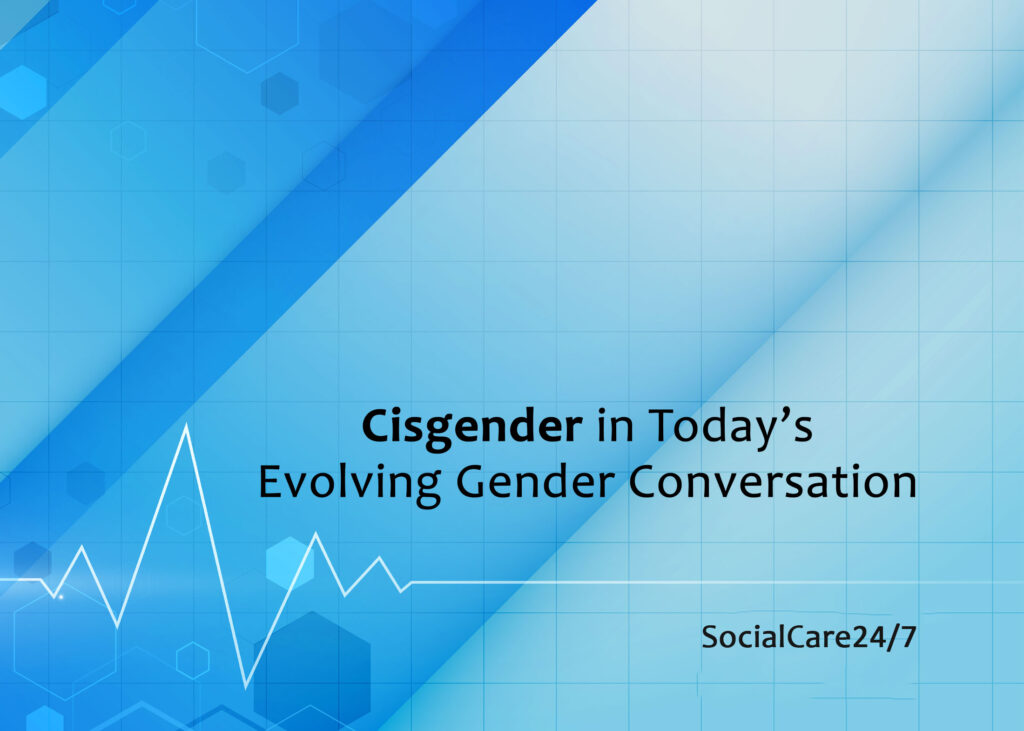Gender and sexuality discourse is shifting, and you’ve undoubtedly heard “cisgender” before. Actually, what does it mean? Being Cisgender involves identifying with one’s birth sex. We can better grasp how individuals feel and indicate their gender using that term.
Understanding “cisgender meaning” helps you learn the spectrum of genders and the need for a more open gender discourse, even if it’s not popular.
The Meaning of Cisgender
Cisgender people identify with their natal sex. Thus, a cisgender individual identifies with the gender physicians and society associate with their natal biology. A person is cisgender if they were born female and still identify as one.
Cisgender folks don’t dispute their gender identification. Their gender perception fits society’s based on their birth appearance.
Understanding Gender and Sex
First, gender should be distinguished from sex to understand Cisgender. Many people use these two terms interchangeably, yet they signify distinct things.
- Sex
It usually relates to genitalia, chromosomes, and hormones. Due to these visible features, physicians usually identify newborns as male or female and assign a sex. Not everyone fits perfectly into these biological categories, making this difference complex.
- Gender
Gender is a social construct that addresses the roles, actions, and expectations of being male, female, or nonbinary in a culture. It encompasses several identities and behaviors beyond masculinity and femininity. Whether people agree with their natal sex or not, their gender identity indicates how they view themselves.
Cisgender and Transgender in a Clear Contrast
Transgender is the opposite of Cisgender. Gender identification matters to heterosexual individuals but not transgender persons. Transgender people may identify as nonbinary or another gender regardless of their birth sex.
Also Check: Health Insurance Plans for Family
Transgender women were born male but identified as feminine. Similarly, a transgender person was born feminine but considers themself a man. Cisgender men were born male and identify as men.
Gender Identity vs Sexual Orientation
Sex preference and gender identity should be kept distinct. Although these two personality traits commonly overlap, they are separate.
- Gender identity
This term describes how someone views their gender. Similar to a straight man who accepts his gender identity.
- Sexual orientation
Who someone likes matters. Straight males can prefer women or men of any gender. This might make him bisexual, heterosexual, or something else.
Whereas gender identification is how someone sees themselves, sexual orientation is who they are emotionally or romantically drawn to. Moreover, Cisgender doesn’t imply sexual preference.
The Historical Development of the Term Cisgender
The Latin term “cis-” means “on the same side,” which is where “cisgender” originates. This differs from “trans-,” meaning “across” or “on the other side.” Chemistry researchers use “cis-” to describe compounds with identical components.
First used in the early 1900s, “cisgender” describes persons whose gender identification matches their natal sex. In 1914, German sexologist Ernst Burchard used the term “cisvestitismus” to characterize gender-appropriate clothing. He contrasted it with “transvestitism,” or “cross-dressing.” Before the 1990s, academics and society didn’t use “cisgender.” It described the experiences of persons who identify with their biological gender.
The Need for the Term Cisgender
The term “cisgender” is crucial to understanding gender. Cisgender persons were once considered “default” or “normal” genders—this neglected or marginalized transsexual experiences. A label for the cisgender experience helps gender identities become more prevalent. It helps individuals understand cisgender identity as one of several gender identities, not the sole one.
Knowing what it means to be Cisgender helps us appreciate its benefits. Cisgender persons have easier access to gender-affirming treatment, are more accepted by society, and have fewer challenges achieving social standards. People who profit from these advantages may not notice. Straight individuals must recognize their privileges and seek to make society more equitable.
What does “Cishet” mean?
You may also hear “cishet,” meaning “cisgender heterosexual.” A cishet individual likes persons of the opposing gender yet identifies with their biological gender. This term “cishet” means what? Someone who isn’t homosexual or lesbian.
The word “cishet” emphasizes the social restrictions and privileges specific communities enjoy. We aim to highlight how society favors Cisgender and heterosexual individuals, making life simpler for them without the prejudice or issues that other people, especially LGBTQ+ persons, face.
The Role of Cisgender Privilege
Since their gender identification matches their biological sex, cisgender persons enjoy social advantages. No harassment in public restrooms, a name and gender that match what others anticipate, legal recognition, and more straightforward healthcare access are some of these perks.
Also Check: How Many Chromosomes Do Humans Have?
Understanding that cisgender individuals have an advantage helps improve the world for everyone. If we acknowledge that straight people have benefits, we can fight toward a more equitable society for transgender and nonbinary persons.
Conclusion
While “cisgender” may appear unimportant, it has several connotations. Understanding its meaning helps us comprehend gender diversity and why we need inclusive language. That the phrase is prevalent suggests that society is becoming more conscious and accepting of gender differences.
It also opens a discourse about trans benefits, which raises awareness of how we can strive toward a more equitable society for all gender identities.
Source Link



